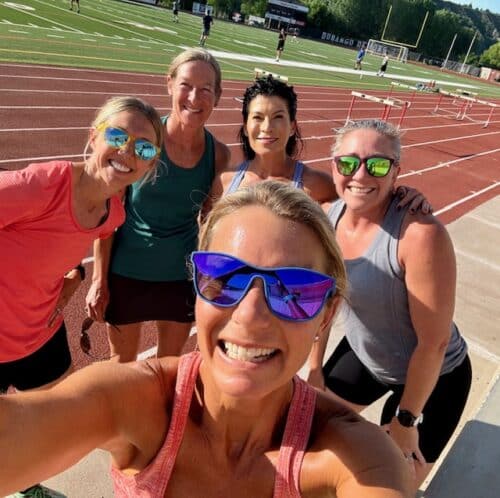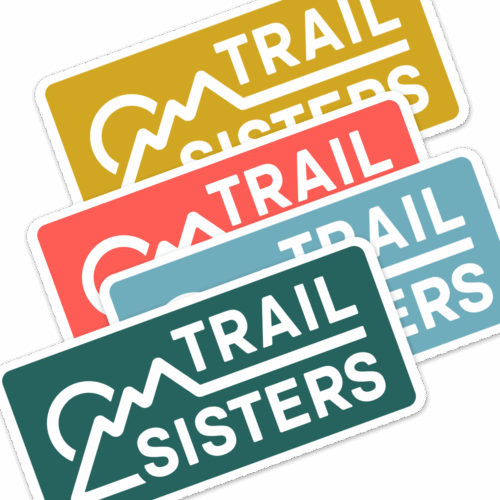There is nothing quite like the excitement of a novice runner. Excitement over accomplishing the effort of beginning a running routine can lead to a curiosity within oneself to see what is possible. What if I can run this distance? What if I could hold this pace? What if I ran outside instead of the on the treadmill? What if I ventured onto this trail today instead of sticking to my neighborhood route? Over time, success and confidence grows and often turns into a desire to participate in races requiring a qualifying time and/or winning a lottery to register and compete. For serious marathoners and road runners, achieving a Boston Qualifier and running the Boston Marathon becomes the goal. In the trail world, running a qualifying time and being selected via lottery into Western States may be the dream. For many, the process to just get into races of this type is an arduous process with numerous near hits and misses over a long period of time. Because many of these races are marathon and ultra-marathon distances, the process may take years.
Some runners may find themselves so focused on achieving the end goal of race entry that they lose their joy for the sport along the way. For others, an attachment of self-worth or success as a runner can become tied to running the race that they are working towards. In turn, such an attachment can lead to feelings of imposter syndrome once entry into the race is achieved. Big name races like Western States and the Boston Marathon are recognizable to the non-running public. Runners are frequently asked by their well-intentioned non-running peers if they have run the races that they are working so hard to enter. The desire to get in, the publicity, and the inability to register without “earning” it can build conscious and sub-conscious expectations of what one will feel like when they finally get in and what it will be like to run the race.
The unspoken truth of qualifying and getting into a race with such requirements is that it can be a very confusing time for a runner. A person can rarely train with such determination for so long without dreaming and forming ideas about what it will feel like and be like to stand on the start line and run the event. While attempting to run a qualifying race time or anxiously awaiting the results of a lottery, daydreams of the goal race are not likely to include less than ideal weather conditions or the usual race day issues that occur during any other race. Running a marathon or ultra distance is hard no matter the location or the process to get in. Realizing that joy and conflicting emotions are valid and normal can aid in maintaining a sense of pride, peace, and fulfillment.
Pursuing such big goals can be an exhausting process. Races usually require the qualifying time to have occurred during the previous year which may not leave a lot of recovery time between the qualifying race and the goal race. Sadly, some may be overtrained or burned out before even reaching the start line. On Des Linden and Kara Goucher’s podcast, Nobody Asked Us (Season 2, Episode 28), Des Linden speaks to the reality that sometimes a runner experiences a break through and sometimes a runner breaks down. Linden was referring to Fiona O’Keefe’s injury that required her to drop off course during the Paris 2024 Summer Olympic Marathon. For runners pushing themselves, the breakthrough may come during the qualifying race. The break down may happen during the buildup to the goal race. This can be especially hard for someone who feels that they have already given everything they had emotionally and physically to get the chance to line up at the start. Having a strong support system which includes runners and non-runners can be crucial in navigating the highs and lows that can be experience post-qualifier.


Because of the registration process, most races with qualifying requirements and/or lotteries do not allow for deferrals. Financial hardship, family and work obligations, or even race cancellations (ie Covid, environmental conditions, etc) can be heartbreaking. Runners may decide to push through injuries and illnesses risking longer recovery times or long-term effects. The joy of getting into a goal race and public knowledge of the intent to run can put pressure on a runner who would rather decide not to run for whatever reason. The guidance of a trusted coach or experienced runner can provide perspective, advice, and solutions to working through barriers and challenges.
It is said that training doesn’t end when the finish line is crossed. The heartbreak and joy felt during the process of trying to gain entry into a goal race does not end with the e-mail of acceptance. Allowing oneself to be open to the possibility of having the day of their dreams while acknowledging that things may not go as envisioned can go a long way towards having a more positive experience regardless of the day or the outcome. Starting the process of working towards a qualifying race with a very clear intention as to why one wants to pursue a particular goal is also vital to avoid getting lost along the way. Is it about qualifying, the race itself, both, or feeling the need to validate oneself as a runner? Despite all the different paths, obstacles, and time it took to get there, every runner on the start line of a time-qualified or lottery race is sharing a common experience of dreams realized and the complex set of emotions that being present entails. It is okay to be overcome with the pride and joy of starting and finishing something that not everyone has the ability or opportunity to experience. It is also okay to have a bad day, to be nervous, disappointed, or even heartbroken. One race cannot take away all the days that an athlete kept showing up, kept pursuing, and kept believing in the possibility of realizing a goal or a dream. There is nothing quite like the experience of a first “earned” race. Being open to experiencing all that training and the race brings allows for those magical moments to happen and creates an important chapter in the history of the runner.















